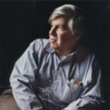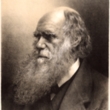The greatest show on Earth : the evidence for evolution
(Book)
576.8 DAWKI
1 available
Copies
| Location | Call Number | Status |
|---|---|---|
| Central - Adult Nonfiction | 576.8 DAWKI | Available |
Description
More Details
Notes
Subjects
Similar Titles From NoveList
Similar Authors From NoveList
Published Reviews
Choice Review
This book is the author's thorough effort to "demonstrate that evolution is an inescapable fact." Dawkins, an esteemed, prolific writer (e.g., The God Delusion, CH, May'07, 44-4994; The Ancestor's Tale, CH, Apr'05, 42-4628) deftly guides readers along clear paths of evidence showing that species of organisms from microbes to man actually change over time. The book, which is aimed at "history-deniers," the author's term for creationist deniers of facts, targets mainly US readers. Dawkins is justifiably alarmed that this country contains a higher proportion of history-deniers than all 32 countries in Europe. (An appendix reports poll results.) Because history-deniers deny the facts of chemistry and physics as well as biology, Dawkins carefully explains radioactivity and why it provides reliable clocks that inform us of rates of evolutionary change at vastly disparate time scales. He illuminates historic evolutionary change, within and among species, with clear stories of significant biological observations and experiments. Most of the book is accessible to high school students; it is also a clear read for adults with hazy recollections of the basics. Although not presented as such, the work is a painless primer of the scientific method more generally--observational and experimental, and always hypothetico-deductive. Summing Up: Highly recommended. All levels/libraries. A. J. Kohn emeritus, University of Washington
Publisher's Weekly Review
Richard Dawkins begins The Greatest Show on Earth with a short history of his writing career. He explains that all of his previous books have naOvely assumed "the fact of evolution," which meant that he never got around to laying "out the evidence that it [evolution] is true." This shouldn't be too surprising: science is an edifice of tested assumptions, and just as physicists must assume the truth of gravity before moving on to quantum mechanics, so do biologists depend on the reality of evolution. It's the theory that makes every other theory possible. Yet Dawkins also came to realize that a disturbingly large percentage of the American and British public didn't share his enthusiasm for evolution. In fact, they actively abhorred the idea, since it seemed to contradict the Bible and diminish the role of God. So Dawkins decided to write a book for these "history-deniers," in which he would dispassionately demonstrate the truth of evolution "beyond sane, informed, intelligent doubt." After only a few pages of The Greatest Show on Earth, however, it becomes clear that Dawkins doesn't do dispassionate, and that he's not particularly interested in convincing believers to believe in evolution. He repeatedly compares creationists and Holocaust deniers, which is a peculiar way of reaching out to the other side. Elsewhere, Dawkins calls those who don't subscribe to evolution "ignorant," "fatuously ignorant" and "ridiculous." All of which raises the point: who, exactly, is supposed to read this book? Is Dawkins preaching to the choir or trying to convert the uninformed? While The Greatest Show on Earth might fail as a work of persuasive rhetoric-Dawkins is too angry and acerbic to convince his opponents-it succeeds as an encyclopedic summary of evolutionary biology. If Charles Darwin walked into a 21st-century bookstore and wanted to know how his theory had fared, this is the book he should pick up. Dawkins remains a superb translator of complex scientific concepts. It doesn't matter if he's spinning metaphors for the fossil record ("like a spy camera" in a murder trial) or deftly explaining the method by which scientists measure the genetic difference between distinct species: he has a way of making the drollest details feel like a revelation. Even if one already believes in the survival of the fittest, there is something thrilling about learning that the hoof of a horse is homologous to the fingernail of the human middle finger, or that some dinosaurs had a "second brain" of ganglion cells in their pelvis, which helped compensate for the tiny brain in their head. As Darwin famously noted, "There is grandeur in this view of life." What Dawkins demonstrates is that this view of life isn't just grand: it's also undeniably true. Color illus. (Sept. 29) Jonah Lehrer is the author of How We Decide and Proust Was a Neuroscientist. (c) Copyright PWxyz, LLC. All rights reserved
Library Journal Review
In books such as The Selfish Gene, The Blind Watchmaker, and Climbing Mount Improbable, Dawkins has contributed significantly to the public understanding of evolutionary theory. Here, he backtracks, offering not a discussion of the magnificence of the evolutionary view of life but several basic proofs of its validity. He argues that this is necessary because of recent assaults from creationists upon the very concept of evolution by natural selection. There are many books that address the need of better informing the public about why the theory is essential, e.g., David Sloan Wilson's Evolution for Everyone and Jerry A Coyne's Why Evolution Is True. Dawkins has an influential voice in the debate, so the broadsides that he launches against creationists in this book will certainly cheer his many fans. However, he seems to be primarily preaching to the choir and probably won't win converts (a metaphor that Dawkins, an atheist and author of The God Delusion, might find objectionable). Verdict The author's name will guarantee a readership, but the sincerely curious and undecided would benefit more from other recent titles.-Gregg Sapp, Evergreen State Coll. Lib., Olympia, WA (c) Copyright 2010. Library Journals LLC, a wholly owned subsidiary of Media Source, Inc. No redistribution permitted.
Kirkus Book Review
Look out, creationists. There's a new sheriff in town, and he talks like an Oxford don. In fact, Dawkins (The God Delusion, 2007, etc.) gave up the Oxford chair in the Public Understanding of Science in order to write full-time, and to spend more time agitating against antiscience and pseudoscience. The author opens with guns a-blazing, demanding what we might think of a Latin teacher's being forced to prove that the Romans ever existed and, more provocatively, a history teacher's having to give equal time to Holocaust deniers: "Fashionably relativist intellectuals chime in to insist that there is no absolute truth: whether the Holocaust happened is a matter of personal belief; all points of view are equally valid and should be equally 'respected.' " Nonsense and balderdash, cries Dawkins, adding, against those who deny the factuality of evolution, "Evolution is a fact in the same sense as it is a fact that Paris is in the Northern Hemisphere." As such, it would seem that the battle for evolution should have long been over, but there are still deniers aplenty. For them, Dawkins provides careful explication of selectionnatural, adaptive, human-induced et al.and of evolutionary notions such as the (much misquoted) survival of the fittest. The author writes with terrific wit ("Cabbages are a vegetable affront to essentialism and the immutability of species") and considerable learning, but what is interesting here is his fire. Without the strictures of academia, it seems, he relishes the opportunity to light into his opponents. Whether anyone will stand up to refute his notions remains to be seen, but for now Dawkins wins on points. A pleasure in the face of so much scientific ignorancebiology rendered accessible and relevant to the utmost degree. Copyright Kirkus Reviews, used with permission.
Library Journal Reviews
In books such as The Selfish Gene, The Blind Watchmaker, and Climbing Mount Improbable, Dawkins has contributed significantly to the public understanding of evolutionary theory. Here, he backtracks, offering not a discussion of the magnificence of the evolutionary view of life but several basic proofs of its validity. He argues that this is necessary because of recent assaults from creationists upon the very concept of evolution by natural selection. There are many books that address the need of better informing the public about why the theory is essential, e.g., David Sloan Wilson's Evolution for Everyone and Jerry A Coyne's Why Evolution Is True. Dawkins has an influential voice in the debate, so the broadsides that he launches against creationists in this book will certainly cheer his many fans. However, he seems to be primarily preaching to the choir and probably won't win converts (a metaphor that Dawkins, an atheist and author of The God Delusion, might find objectionable). VERDICT The author's name will guarantee a readership, but the sincerely curious and undecided would benefit more from other recent titles.—Gregg Sapp, Evergreen State Coll. Lib., Olympia, WA
[Page 103]. Copyright 2008 Reed Business Information.Publishers Weekly Reviews
Signature
Reviewed by Jonah Lehrer
Richard Dawkins begins The Greatest Show on Earth with a short history of his writing career. He explains that all of his previous books have navely assumed "the fact of evolution," which meant that he never got around to laying "out the evidence that it [evolution] is true." This shouldn't be too surprising: science is an edifice of tested assumptions, and just as physicists must assume the truth of gravity before moving on to quantum mechanics, so do biologists depend on the reality of evolution. It's the theory that makes every other theory possible.
Yet Dawkins also came to realize that a disturbingly large percentage of the American and British public didn't share his enthusiasm for evolution. In fact, they actively abhorred the idea, since it seemed to contradict the Bible and diminish the role of God. So Dawkins decided to write a book for these "history-deniers," in which he would dispassionately demonstrate the truth of evolution "beyond sane, informed, intelligent doubt."
After only a few pages of The Greatest Show on Earth, however, it becomes clear that Dawkins doesn't do dispassionate, and that he's not particularly interested in convincing believers to believe in evolution. He repeatedly compares creationists and Holocaust deniers, which is a peculiar way of reaching out to the other side. Elsewhere, Dawkins calls those who don't subscribe to evolution "ignorant," "fatuously ignorant" and "ridiculous."
All of which raises the point: who, exactly, is supposed to read this book? Is Dawkins preaching to the choir or trying to convert the uninformed? While The Greatest Show on Earth might fail as a work of persuasive rhetoric—Dawkins is too angry and acerbic to convince his opponents—it succeeds as an encyclopedic summary of evolutionary biology. If Charles Darwin walked into a 21st-century bookstore and wanted to know how his theory had fared, this is the book he should pick up.
Dawkins remains a superb translator of complex scientific concepts. It doesn't matter if he's spinning metaphors for the fossil record ("like a spy camera" in a murder trial) or deftly explaining the method by which scientists measure the genetic difference between distinct species: he has a way of making the drollest details feel like a revelation. Even if one already believes in the survival of the fittest, there is something thrilling about learning that the hoof of a horse is homologous to the fingernail of the human middle finger, or that some dinosaurs had a "second brain" of ganglion cells in their pelvis, which helped compensate for the tiny brain in their head. As Darwin famously noted, "There is grandeur in this view of life." What Dawkins demonstrates is that this view of life isn't just grand: it's also undeniably true. Color illus. (Sept. 29)
Jonah Lehrer is the author of How We Decide and Proust Was a Neuroscientist.
[Page 44]. Copyright 2009 Reed Business Information.Reviews from GoodReads
Citations
Dawkins, R. (2009). The greatest show on Earth: the evidence for evolution (First edition.). Free Press.
Chicago / Turabian - Author Date Citation, 17th Edition (style guide)Dawkins, Richard, 1941-. 2009. The Greatest Show On Earth: The Evidence for Evolution. New York: Free Press.
Chicago / Turabian - Humanities (Notes and Bibliography) Citation, 17th Edition (style guide)Dawkins, Richard, 1941-. The Greatest Show On Earth: The Evidence for Evolution New York: Free Press, 2009.
Harvard Citation (style guide)Dawkins, R. (2009). The greatest show on earth: the evidence for evolution. First edn. New York: Free Press.
MLA Citation, 9th Edition (style guide)Dawkins, Richard. The Greatest Show On Earth: The Evidence for Evolution First edition., Free Press, 2009.


































